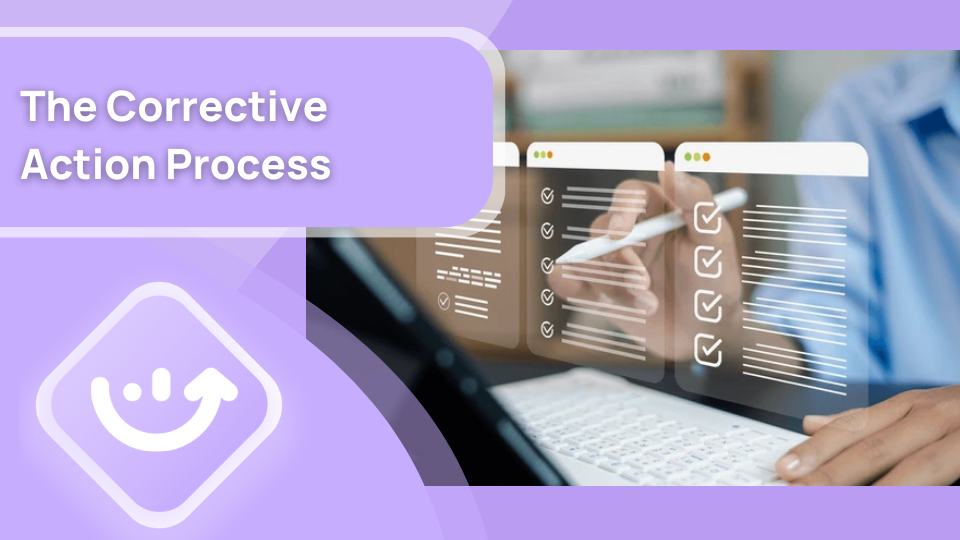Running a small or independent hotel can present unique challenges. Larger hotel managers may have the benefit of directing a full staff of housekeepers, technicians, and front desk workers.
But many independent hotel managers have to take on the duties of those roles themselves—or delegate to a much smaller team and fill gaps where necessary.
It can almost be more overwhelming for some small hotel managers than it is for a big brand-name hotel chain because so much of the responsibility falls on your shoulders.
We’ve got a few small hotel management tips to help you better understand how to manage a small hotel based on your own circumstances and offerings. Beyond these tips, be sure to visit our Ultimate Hotel Operations Guide for a more in-depth look at how hoteliers are improving their properties.
In this post, we’ll discuss the challenges independent hotels currently face, 10 tips for small hotel management, and the important role of Small Hotel Maintenance Software can play in simplifying operations at your independent property.
Plus we’ll provide a free checklist template to get you started with some standard small hotel management practices!
.svg)

Priced on per user or per location basis
Available on iOS, Android and Web

How Does A Small Hotel Differ From A Chain Hotel?
In essence, much fewer people are involved with the ownership and operation of small hotels than their larger-scale counterparts.
There are advantages and disadvantages in running each type of hotel, but one of the key differences is likely in staffing.
Typically a chain hotel or large hotel brand will employ whole teams of housekeepers, maintenance techs or engineers, and front desk workers to staff their properties and keep things running smoothly.
Independent hotels, however, usually run on a minimal staff of necessary employees while the manager plays a big role in filling any gaps in the workflow. For example, an independent hotel may have a couple of housekeepers and a maintenance technician on call while the manager works the front desk and stays hands-on at the property.

Depending on how busy the property is and how many rooms there are, small hotel teams may employ more housekeepers or an on-property technician to support growing needs.
It depends on individual property needs and guest demands.
But generally, these hotels have fewer rooms than a large chain brand and are going to have a few trusted people to handle the workload rather than entire departments.
Hotel chains and small properties also differ in their customer experience.
This is where independent properties tend to come out ahead as far as guest satisfaction is concerned. Because small properties aren’t expected to follow corporate regulations around brand standards, their focus can be on what guests want.

Independent properties have the freedom to really listen to guests and rapidly make changes to meet guest standards and expectations, while larger hotel groups typically have to wade through some amount of bureaucracy to be approved for changes or special requests.
Another difference you’ll likely observe between chain hotels and independent properties is in the price of rooms.
Believe it or not, guests can typically get a better deal staying with a small or independent hotel than they can with a chain. Trilyo notes that in 2017 the average daily rate to stay with a luxury chain was $375 compared to $219 to stay with an independent property, and in 2018, the average daily rate for chains was $465 compared to $308 at a small property.
5 Challenges Facing Small Hotels in 2025
Small hotels are navigating a complex landscape in 2025, facing several significant challenges:

- Economic Pressures: Rising operational costs like increased National Insurance contributions for employers, increased minimum wages and property rates put the hospitality industry in competition. Strategic productivity and investment decisions are necessary to prevent falling into these financial strains and to continue profitability.
- Sustainability Demands: As more hotels go green, guests are opting for eco-friendly practices, a move that forces hotels to lock in sustainable factors such as energy-efficient lighting, smart climate control, and reduction of waste. These practices are implementable yet these necessitate enormous investment and are a challenge for smaller grounds.
- Technological Integration: As technology progresses quickly, hotels must catch up by adopting as much innovation as contactless check-in, mobile room keys and voice-activated room controls are all becoming modern guest expectations. This integration requires substantial financial and logistics resources, which can be an especially large load on the back of small hotels.
- Labor Shortages: The industry is grappling with difficulty in recruitment and retention of employees, thereby affecting service quality and operation efficiency. Becoming competitive and attracting and retaining talent is important thanks to the comprehensive career development opportunities and competitive benefits offered.
- Increased Competition: With the rise of short-term rental platforms like Airbnb and Vrbo, small hotels are up against their competition with more competition to attract guests, which increases the demand for differentiating oneself through unique experiences and personal services.
10 Small Hotel Management Tips That Drive Bookings
Tip #1: Understand your Competition

The first tip in running a successful independent hotel is to make sure you understand your competition.
Take a look at the local brand-name properties and short-term rental options. It’s important to explore your competition and understand what they’re offering so you can tailor your guest experience to compete with local guest expectations.
Tip #2: Prioritize Sustainability
Travelers are becoming more interested in the idea of sustainable practices. Initiate eco-friendly measures, including energy-saving measures in the form of lighting in an eco-friendly manner, water-saving measures, and locally sourced amenities.
You should communicate to your potential eco-conscious travelers about your deployment of sustainability in your marketing journeys to attract travelers aiming to do so.
Tip #3: Invest in Staff Training
Your team is front and center with guest interactions; they directly impact guest experience success or failure. They should receive complete training so that customer service is given and issues are addressed in time and create memorable events for the guests. The empowerment of staff with the correct skills improves both guest satisfaction and loyalty.
Tip #4: Clarify your USP (Unique Selling Proposition)

Ensuring you’ve identified and marketed your USP, or Unique Selling Proposition, is critical in attracting guests and staying competitive in this evolving travel market. Does your independent hotel offer specialized amenities?
Identify what makes your hotel stand out and clarify why it’s valuable for your guests and unique within the industry.
Tip #5: Focus on Local Partnerships
Share with local businesses like restaurants, tour operators, or cultural attractions to offer exclusive packages or discounts for your guests. Highlight these partnerships to give you and your hotel a unique value and a local flavor to your area, making your hotel a piece of the guest’s overall travel experience.
Tip #6: Offer Flexible Booking and Cancellation Policies
In uncertain times flexibility is important to travelers. Make booking and canceling reservations guest-friendly to lessen the hesitation during the booking process. To provide your potential guests peace of mind when selecting your property, highlight these policies on your website and your marketing channels.
Tip #7: Market the ideal Experience, not the Room
When it comes to boutique or independent hotels, what guests tend to value most is experience over a novel place to stay. The experience of a small hotel is different from that of a chain property—that’s why guests seek out these alternative options.
Tip #8: Digitize Operations Management

Consider utilizing a digital operations solution to simplify property management.
Tools like Xenia allow you to track and manage daily hotel operations and more via a digital system that’s accessible from you and your team’s individual mobile devices. So no matter where you are at your property you’re able to have full visibility into tasks, employee communications, and more.
Tip #9: Utilize Dynamic Pricing Strategies
Use Dynamic pricing strategies that change room rates based on demand, seasonality, and market conditions to maximize revenue. When using data analytics tools to track trends, competitor pricing, and so on, keep your rates competitive, but maximize occupancy and profitability.
Tip #10: Always be learning (80/20 rule)

Finally, our biggest tip is to prioritize continuous learning.
The 80/20 rule is a principle that states that 80% of outcomes are a result of 20% of causes—essentially, what you put in is what you’ll get out, so prioritizing the most time toward things that will help you achieve intended outcomes is what’s important.
Importance of Small Hotel Management Software
As we mentioned above, a small hotel management software can be really helpful in simplifying processes at your hotel and streamlining tasks.
You may think that because your operation is small you don’t need something as advanced as digital hospitality software, but digital tools are quickly becoming more than advancement—they’re becoming a necessity.

Hotel management software allows you to move away from paperwork and manual task tracking so your team can stay on the same page without sorting through dozens of pages. It also allows you to automate tasks so that everything doesn’t require additional steps or workarounds for your team to complete and track work.
You’ll easily be able to see what needs to be done, what’s in the works, and what’s already been completed so you always have an understanding of what’s happening at your property.
Solutions like Xenia allow you to do all this and more with a customizable, user-friendly hospitality management solution built for every hotel, big or small.
Free Downloadable Checklists
We’ve included some checklist templates below for housekeeping, maintenance, and front desk to get you started managing tasks at your independent property. Just click the link below for the template or templates you’d like to download!
To learn more about what Xenia can do for your property, check out our website and schedule a free demo any time. We’d love to help you manage your small hotel operations seamlessly.
Frequently Asked Questions
Got a question? Find our FAQs here. If your question hasn't been answered here, contact us.

Looks like there's no data available in our FAQ section at the moment.

.svg)
.webp)
%201%20(1).webp)





.webp)

.svg)
%201%20(2).webp)










